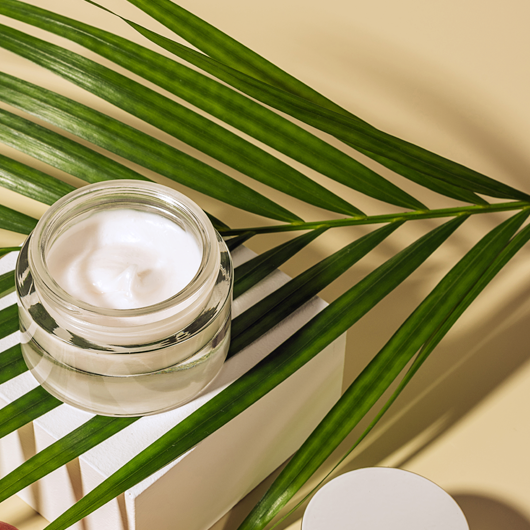Marine Plankton
Phytoplankton, Pure Collagen from Nature
 Scientific Name: {Camba}
Scientific Name: {Camba}
Common Name: {Plankton extract, Phytoplankton}
Common Sources: {Seaweed, Algae}
Plankton extracts come from many different sources, including many seaweed species and algae. Plankton are tiny marine creatures that drift through the water, feasting on whatever smaller plant particles they can find.
They are full of nutrients and essential to many animals' diets, including the enormous baleen whale. In addition, many fish species rely on a steady supply of plankton to feed and protect their newly laid eggs.
The plankton used to make plankton extracts are generally of the algae variety, as they contain vital proteins and enzymes that can improve the look of aging skin.
Marine Plankton incorporates a plethora of highly nutritious elements. As a result, it is one of the whole ingredients that you can use in skincare products. It provides the necessary vitamins and minerals for skin functioning and contains amino acids, micronutrients, and essential fatty acids.
This highly nutritious ingredient feeds your skin with these nutrients:
Vitamins
- Thiamine (Vitamin B1), Niacin (Vitamin B3), Pantothenic Acid (Vitamin B5), Pyridoxine (Vitamin B6), Vitamin B12, C, E, Folic Acid, Beta-carotene, Potassium, Riboflavin, Selenium,
- EFA's (Essential Fatty Acids): Omega-3, Omega - 6, Gamma Linolenic Acid (GLA), Glutamic Acid, Linoleic-Acid
Amino Acids
- Arginine, Cysteine, Glutamine, Glutathione, Lysine, Magnesium, Asparagine, Aspartic Acid, Bioflavonoids, Biotin, Boron, Calcium, Chlorophyll, Chromium, Cobalt, Electrolytes, Fiber, Fluorine, Germanium, Glycine, Glycogen, Histidine, Iodine, Iron, Lecithin, Leucine, Manganese, Methionine, Molybdenum, Nickel, Nucleic Acids, Phenylalanine, Phosphorous, Proline, RNA, Serine, Silicon, Sodium, Threonine, Tyrosine, Valine, Vanadium, Zinc.
Antioxidants:
- Superoxide Dismutase (SOD)
- Copper
Plankton extracts are high in essential fatty acids, the building blocks of healthy cells. They also provide deep, enduring moisture to the skin. As a result, this ingredient is an excellent source of hydration and a humectant. Humectants train the skin to hold onto its water instead of excreting it to the surface.
In addition, these fatty acids can improve the broken capillaries' look by providing the skin's components to restore itself. While many of these components can be obtained from our food, they are more efficiently utilized when applied topically to the targeted area.
Because some form of plankton survives photosynthesis, they contain vital enzymes that can brighten skin's appearance. Along with Vitamin B and riboflavin, which act as antioxidants, these enzymes help remove the look of impurities, including dark spots and blemishes, and restore skin to a more radiant appearance.
Plankton's antioxidant and chlorophyll content also helps protect skin from further aging, removing free radicals caused by sun exposure and blocking UV light.
With a high zinc content, plankton has important antibacterial properties, reducing the number of blemishes and pimples on the face with its natural moisturizing properties.
Zinc is also necessary for the regeneration of cells and can promote stronger, more vibrant-looking skin.
Marine plankton, the microscopic organisms found abundantly in the oceans, are emerging as a potent ingredient in skincare products due to their rich nutrient profile. Here are five benefits of incorporating marine plankton into your skincare routine:
-
Enhanced Skin Metabolism: Marine plankton is known for stimulating skin metabolism. It provides vital nutrients that can help to energize and rejuvenate the skin's cells. This boost in cell function encourages the regeneration of new skin cells, which can lead to a more youthful and radiant complexion.
-
Protection Against Environmental Stressors: The high levels of antioxidants found in marine plankton protect the skin from environmental stressors such as UV radiation and pollution. These antioxidants help to neutralize free radicals that can lead to premature aging and skin damage. By forming a natural protective barrier, marine plankton ensures the skin remains resilient against daily external aggressions.
-
Intense Hydration: Marine plankton contains amino acids, fatty acids, and polysaccharides, which are great natural moisturizers. They help to bind water to the skin, maintaining its hydration levels. Regular use of skin care products containing marine plankton can leave the skin feeling more supple and plump, reducing the appearance of fine lines caused by dehydration.
-
Improved Skin Texture: Enzymes and minerals present in marine plankton can contribute to the improvement of skin texture. They have exfoliating properties that assist in shedding dead skin cells, promoting a smoother and more even-toned skin surface. The result is a refined complexion with a soft, velvety touch.
-
Anti-Aging Properties: Marine plankton can also have anti-aging effects. Some plankton species are known to stimulate the production of collagen and elastin, which are vital proteins for maintaining skin's elasticity and firmness. With consistent use, marine plankton-infused products can help diminish the signs of aging, resulting in tighter, firmer skin with fewer wrinkles and fine lines.
Incorporating marine plankton into skincare products leverages the ocean's natural resources to support healthier, more resilient skin. It's a sustainable and effective way to enhance beauty routines with the power of marine life.
Natural Plant Extracts to Calm Skin
Additionally, like most natural plant extracts, this extract can calm the look of inflamed, irritated complexions. Further, it can also hydrate skin, making plankton ideal for any skin condition that causes dryness and redness, including rosacea and eczema.
Plankton is safe to use, even for sensitive skin, because it is calming where other products might inflame or irritate.
Adding a plankton extract product or the extract to makeups, lotions, or serums can make you look healthier and feel more resilient.
About the Author
Kari Thomas wrote this article.





